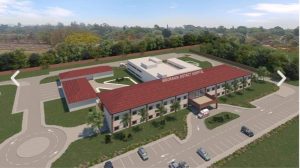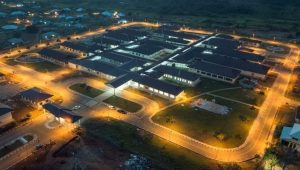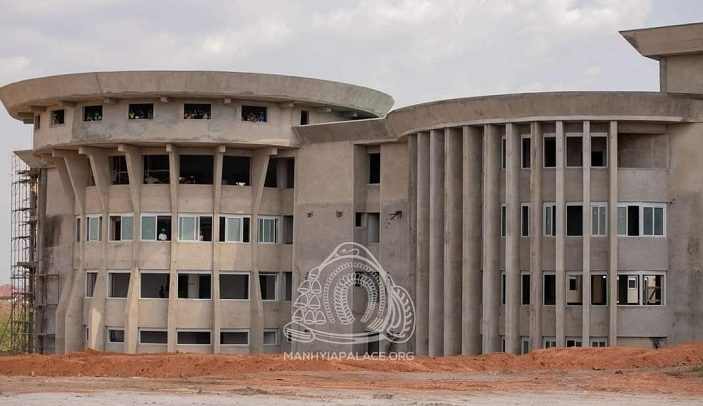President Nana Addo Dankwa Akufo-Addo and Vice President Dr. Mahamudu Bawumia government, has initiated an unprecedented wave of healthcare infrastructure development projects.
While these projects were started prior to the launch of the Agenda 111 hospitals, they are considered remarkable contributions to the country’s healthcare system.
The list of major hospital projects undertaken by the present administration to bolster Ghana’s healthcare services is extensive. Notably, these projects do not include the Euroget projects initiated by former President John Agyekum Kufuor. The government has already commissioned four of the Euroget projects, namely Bekwai, Tepa, Nsawkwa, and Wa, with others still ongoing.

Among the significant projects are:
1. Construction of the Eastern Regional Hospital: This state-of-the-art facility will enhance healthcare services and meet the growing demand in the region.
2. Revival of the Komfo Anokye Maternity Block: After being abandoned for 40 years, this project, once completed, will cater to the maternity needs of the region, alleviating pressure on existing facilities.
3. The Tema Regional Hospital: The city of Tema will soon witness the construction of a fully-equipped regional hospital, which will serve as a hub for specialized healthcare services.
4. La General Hospital: This project aims to rejuvenate La General Hospital, ensuring it meets national healthcare standards and offers quality care to the community.
5. KNUST Medical Centre: A long-delayed project, the government is committed to completing the construction of the KNUST Medical Centre, which will provide advanced medical services.
6. Construction of a 100-bed Trauma Hospital at Obuasi: To address the growing need for specialized trauma care, this facility will cater to trauma patients in the Obuasi area.
7. Rehabilitation and construction of new facilities for Obuasi Health Centre: Upgrades and expansions will enhance healthcare access for the people of Obuasi.
8. Construction of a Trauma Hospital in Anyinam: Anyinam will soon have a dedicated trauma center to address accidents and emergencies in the region effectively.
9. Rehabilitation and construction of the Accident and Emergency Centre at Enyiresi Hospital in the Eastern Region: The upgrade of this facility will significantly improve emergency medical services in the region.
10. Construction of a 110-bed Urology and Nephrology Centre: A specialized center for urological and nephrological services will be established to cater to patients’ needs.
10. Construction of 110 bed- Urology and Nephrology Centre
11. 12- storey Maternity Block at Korle-Bu
12. Shama District Hospital
13. Redevelopment of the Effia Nkwanta Regional Hospital to Teaching Hospital
14. A new Western Region hospital located at Apemanim.
15. Accidental and Emergency Centre at the Dormaa Hospital
16. Construction of Nkoranza hospital
17. Construction of 12 polyclinic (Suame, Drobonso, Sabronum, Manso Nkwanta, Twedie, Jumapo, Kwabeng, Nkwatia, Adukrom, Achiase, Mim, Kpone Katamamso)
18. Six hospital projects in the Western Region (Bogoso, Akontomra, Elubo, Tarkwa Nsuaem, Wasa Tarkwa, Mpohor)

These projects attest to the government’s commitment to transform healthcare in the country. The introduction of drones in the health delivery system and the import of over 300 ambulances demonstrate their innovative approach to ensure efficient and timely medical assistance to the people.
Furthermore, the government has secured funding to complete the second phase of the University of Ghana Medical Centre (UGMC) and the Fomena hospital projects. These endeavors underscore the government’s dedication to providing comprehensive healthcare services across the nation.
President Nana Addo Dankwa Akufo-Addo’s administration’s unprecedented investment and impressive progress in the healthcare sector have made a significant impact on the lives of Ghanaians. With the ongoing Agenda 111 hospitals and other ambitious projects, it is evident that no government since independence has exhibited such unwavering commitment to bolstering healthcare services in the nation.
By Vincent Kubi


